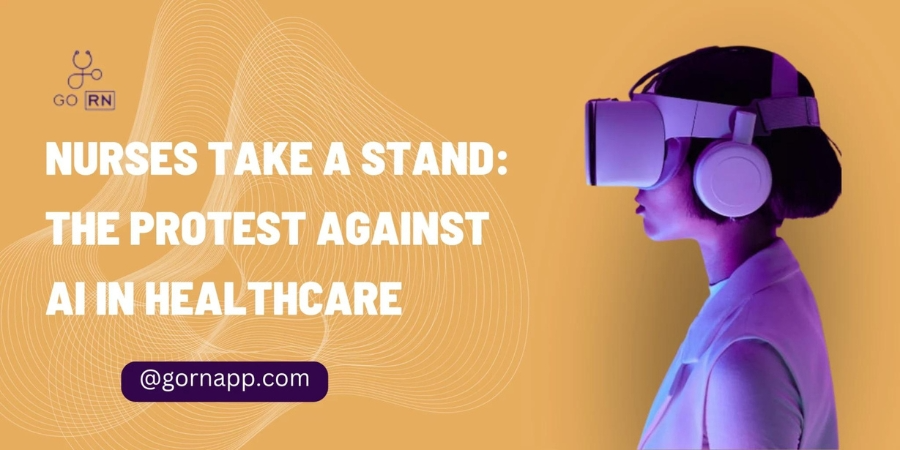Introduction
The integration of Artificial Intelligence (AI) into healthcare is becoming more pronounced, sparking heated debates and significant opposition, particularly among nursing professionals. This blog delves into the roots of these protests, exploring the concerns raised by nurses and the broader implications for the future of nursing and patient care.
The Catalyst for Protest
Recent protests by nurses across various hospitals have highlighted a growing unease with the rapid encroachment of AI technologies in healthcare settings. As reported by nationalnursesunited.org and sfchronicle.com, these protests reflect a deep-seated apprehension about AI technologies replacing the human elements that are critical to patient care. The demonstrations have not only caught the public’s eye but have also prompted a broader discussion among healthcare professionals about finding the right balance between technology and the human touch in medicine.
Core Issues Highlighted by the Nurses
- Job Security Concerns: Many nurses fear job displacement due to AI taking over tasks like patient monitoring and data entry, traditionally performed by humans. This anxiety is compounded by the speed at which AI is being adopted, leaving little time for the workforce to adapt.
- Quality of Patient Care: Nurses argue that the quality of patient care diminishes when technology overshadows human interaction. They stress that empathy and human judgment are indispensable and central to delivering effective healthcare.
- Ethical Concerns: The ethical implications of AI, including data privacy issues and decision-making by algorithms, are also major concerns. Nurses are particularly worried about the integrity of confidential patient information and the potential biases embedded within AI-driven decisions.
Impact of AI on Nursing Practice
While AI can enhance efficiency by streamlining administrative tasks and analyzing large datasets swiftly, its role in direct patient interactions is still contentious. Nurses report that while some routine tasks are simplified, the technology often lacks the necessary subtlety for nuanced decision-making, which could jeopardize patient safety.
Voices from the Frontline
Statements from nurses provide a window into their deep mistrust of AI in healthcare. For example, a senior nurse from a New York City hospital emphasized,
“We cannot allow technology to become a barrier between us and our patients”
Such comments reflect the emotional and professional stakes that nurses associate with the growing use of AI.
The Healthcare Industry’s Response
In reaction to these protests, several healthcare institutions have begun to reassess their approach to integrating AI. Efforts include increasing transparency about how these technologies in healthcare are implemented and investing in training programs to help nurses become proficient with new tools.
Balancing Technology and Human Care
The challenge lies in leveraging Ai technologies in healthcare’s potential without undermining the nurse-patient relationship. Proposed solutions include hybrid models where AI handles data-intensive tasks, freeing nurses to focus more on the aspects of patient care that require human empathy and intuition.
Conclusion
The protests by nurses mark a critical juncture for healthcare. They underscore the need for a considerate approach to technology adoption, one that augments rather than supplants the human elements of nursing. Looking ahead, the goal should be for technology to support rather than overshadow the vital human components of healthcare.
FAQ Section
1) What is AI’s role in healthcare?
AI technologies in healthcare primarily serves functions such as data analysis, patient monitoring, and the simplification of administrative tasks.
2) Why are nurses protesting against AI?
Nurses are protesting the use of AI because they believe an over-reliance on such technologies could threaten job security, degrade the quality of patient care, and raise ethical issues.
3) How can AI improve without compromising job security and patient care?
By implementing AI in ways that complement rather than replace human roles, and by ensuring nurses receive adequate training and oversight, the concerns surrounding AI can be mitigated. This approach promises to preserve the integrity of nursing jobs and maintain high standards of patient care, striking a balance that benefits all stakeholders in the healthcare system.







